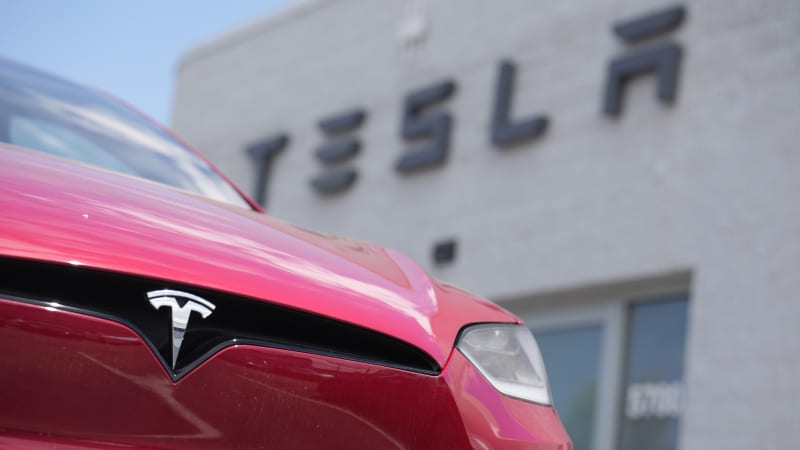Tesla price cuts mean it sold nearly twice the number of cars as it did a year ago

SAN FRANCISCO — Elon Musk’s big bet that Tesla price cuts could boost sales and profits amid increasing competition and poor economic sentiment appears to be yielding mixed results. The company beat analyst expectations for net income in the April-June quarter, although its shares barely budged.
The Austin, Texas, maker of electric vehicles, solar panels and batteries reported net income of $2.7 billion in the quarter, a 20% increase from a year ago. Earnings per share also rose 20% to 78 cents when measured via generally accepted accounting principles.
Analysts, however, tend to focus on Tesla’s own measurement of profit, which excludes stock-based compensation expense. By that measure, Tesla’s net income zoomed to $3.15 billion, or 91 cents a share, sharply exceeding analyst estimates of 80 cents per share according to FactSet. Analysts had expected profits to fall because of the price cuts.
Total revenue rose 47% to $24.93 billion.
Tesla shares, however, initially stayed flat at roughly $292 after the earnings report, up a smidgeon from their close at $291.26.
The company reported strong vehicle delivery numbers on July 2, saying they rose 83% compared to the year-earlier quarter after the company cut prices several times on its four electric vehicle models. The company sold a record 466,140 vehicles worldwide from April through June, nearly double the 254,695 it sold during the same period a year earlier.
The vast majority of the sales involved Tesla’s popular Model 3 sedans and Model Y crossover SUVs.
But the earnings report provided mixed messages on one of the larger questions facing Tesla: whether the automaker’s discounting strategy can boost sales enough to preserve its profit margins. In particular, analysts have focused on the company’s operating profit, a measure that excludes interest and taxes.
Tesla’s operating margin, which represents how efficiently sales are turned into profits, fell to 9.6% in the April-June quarter, down significantly from 14.6% a year earlier.







